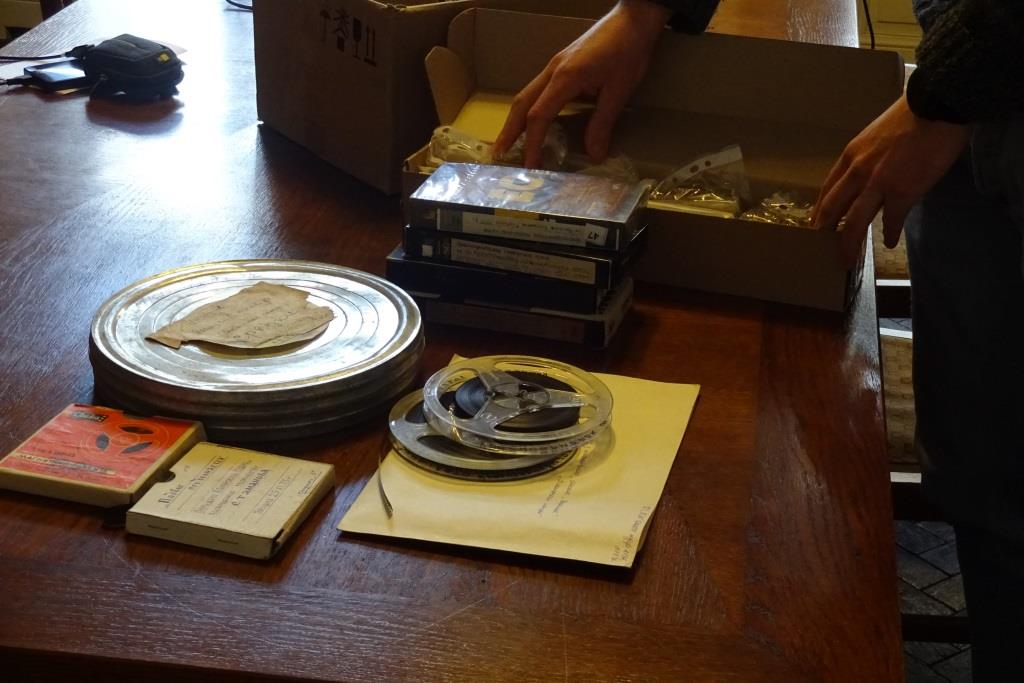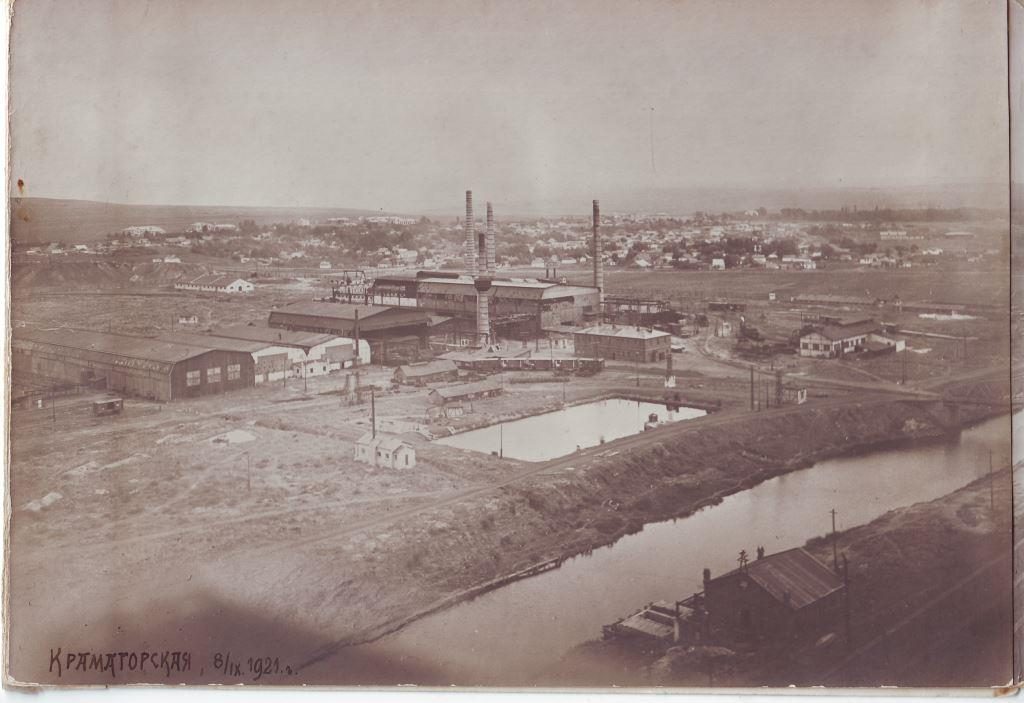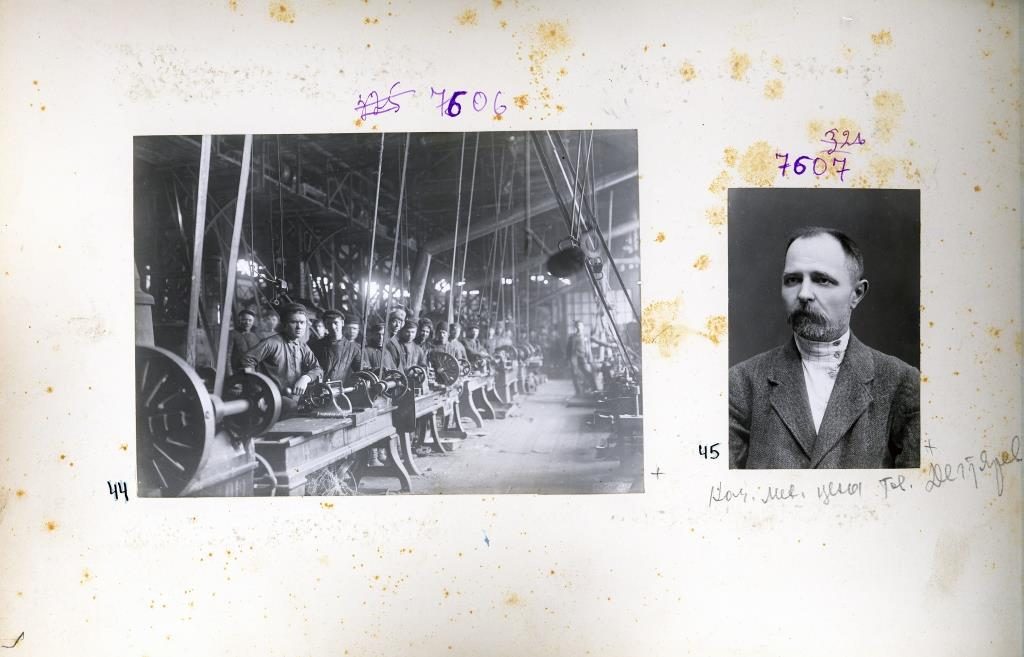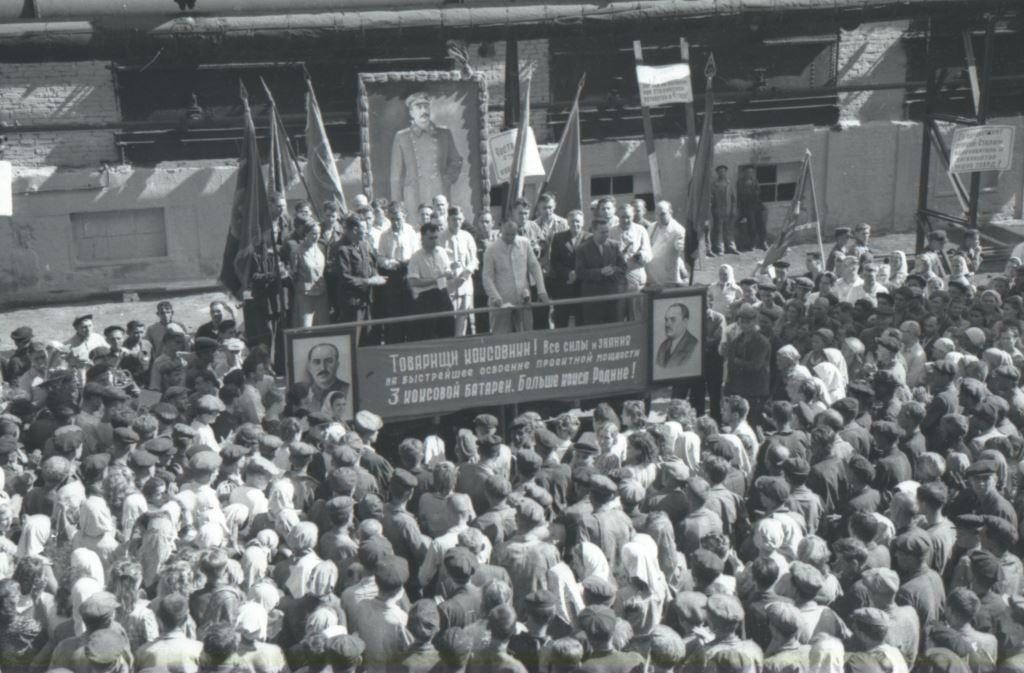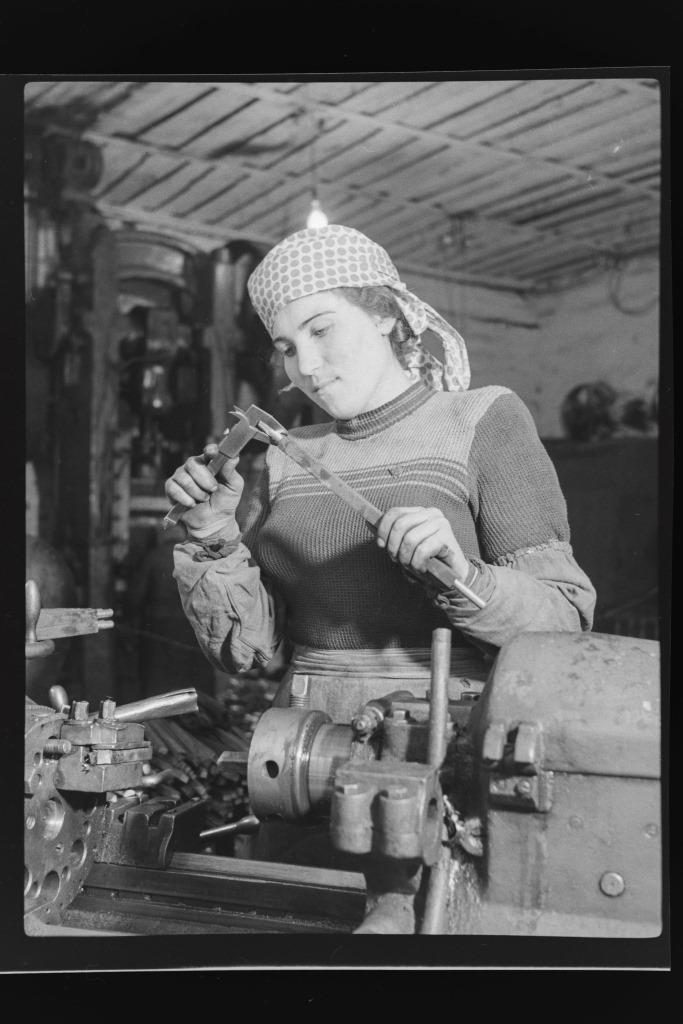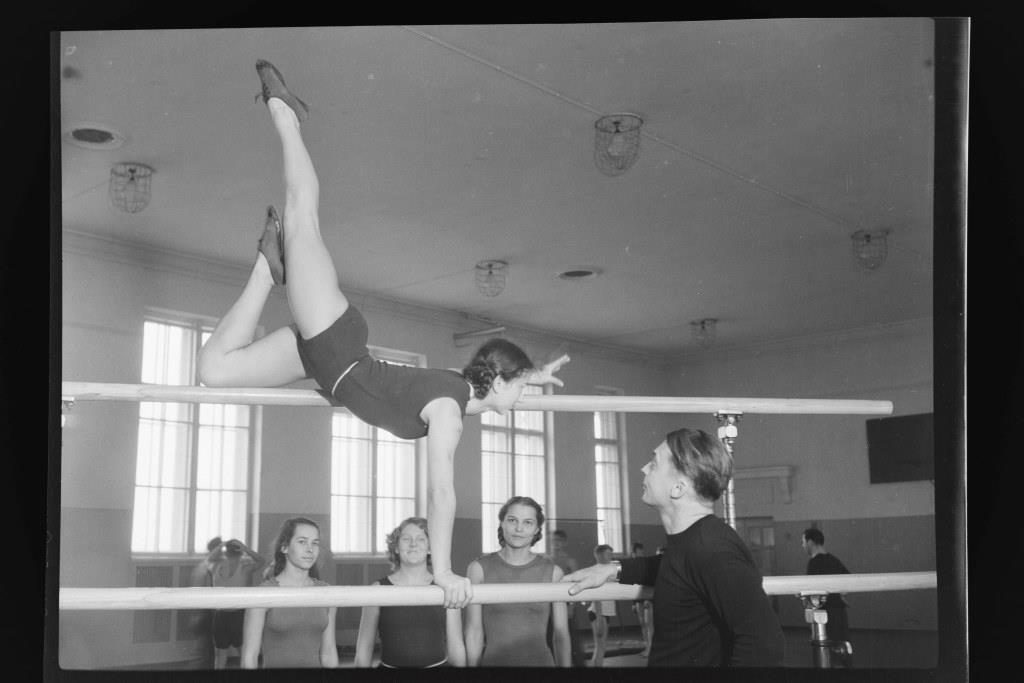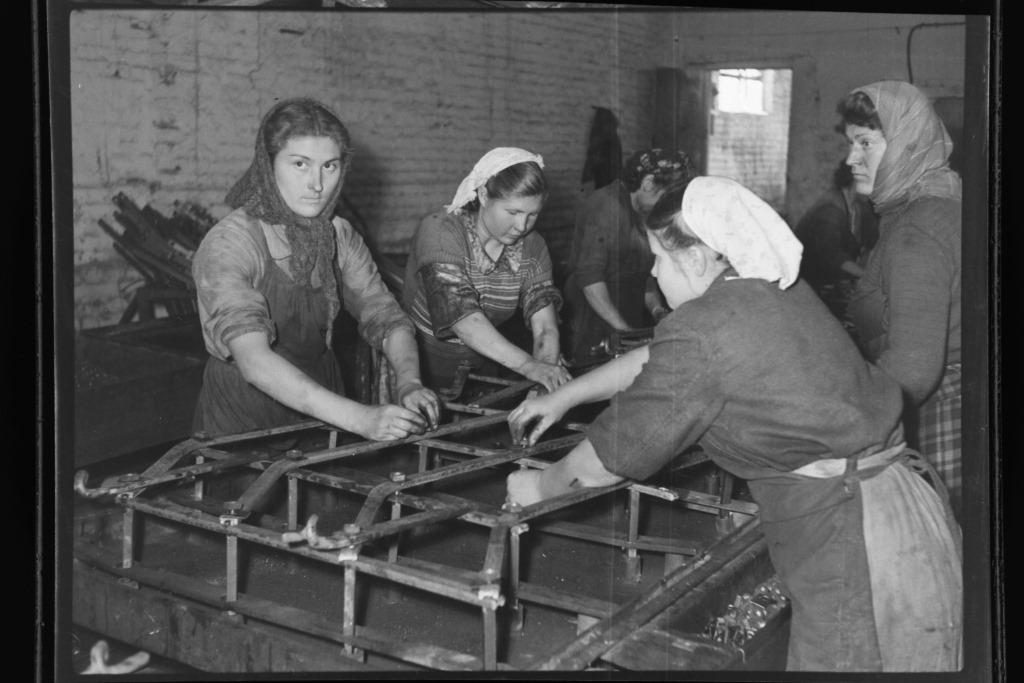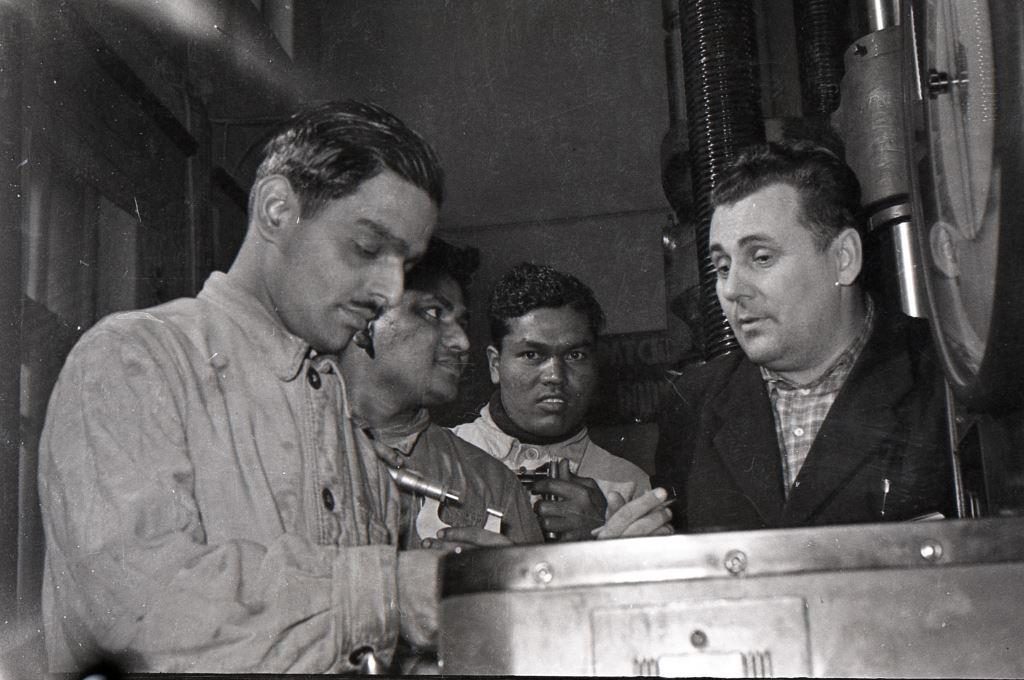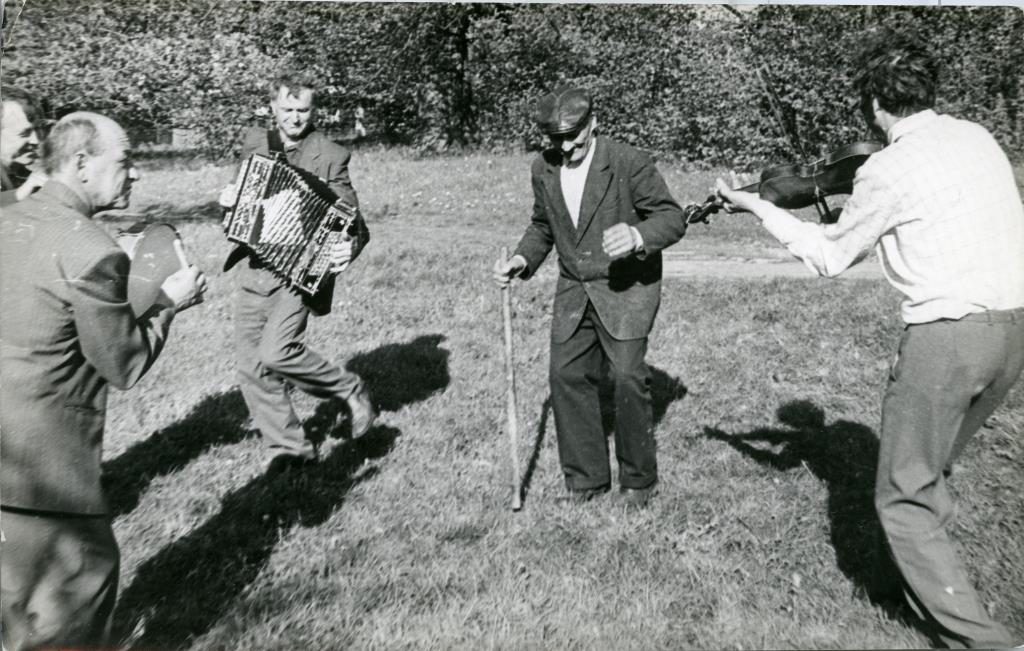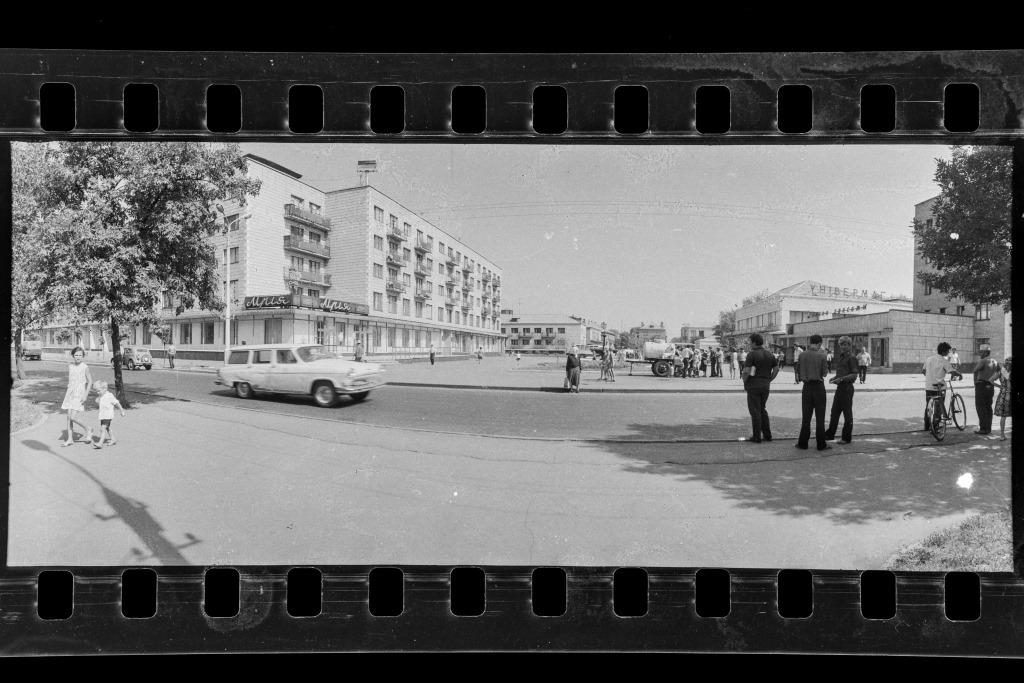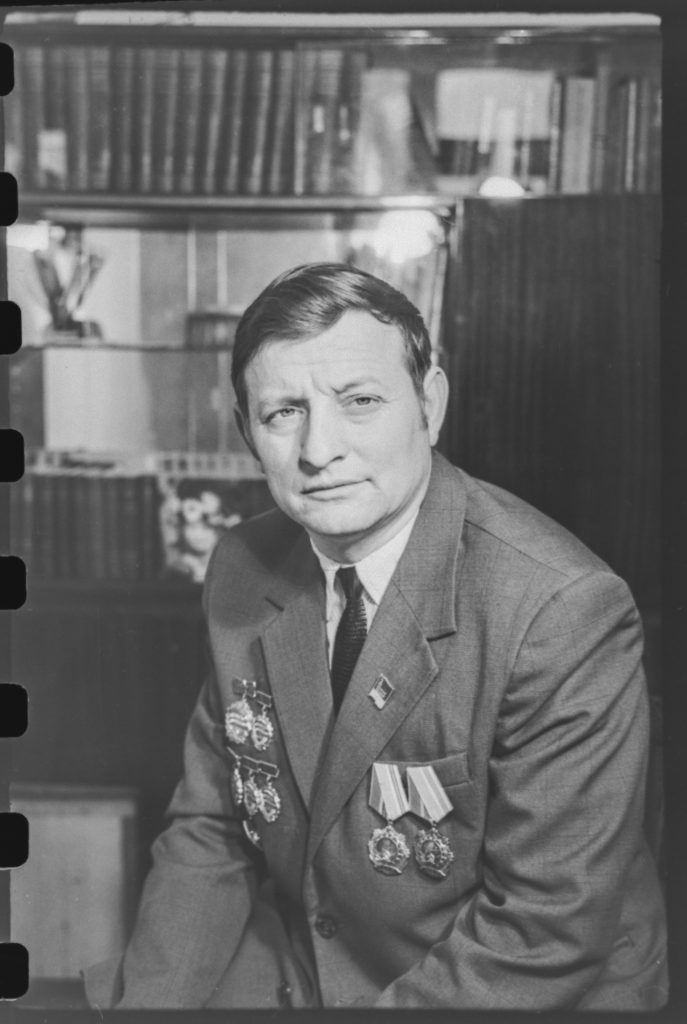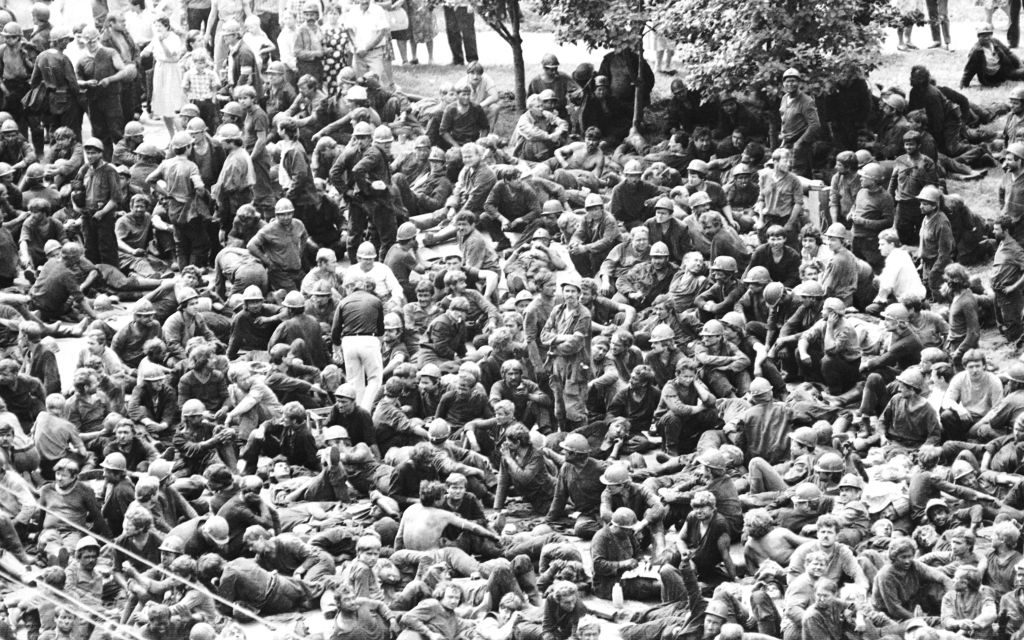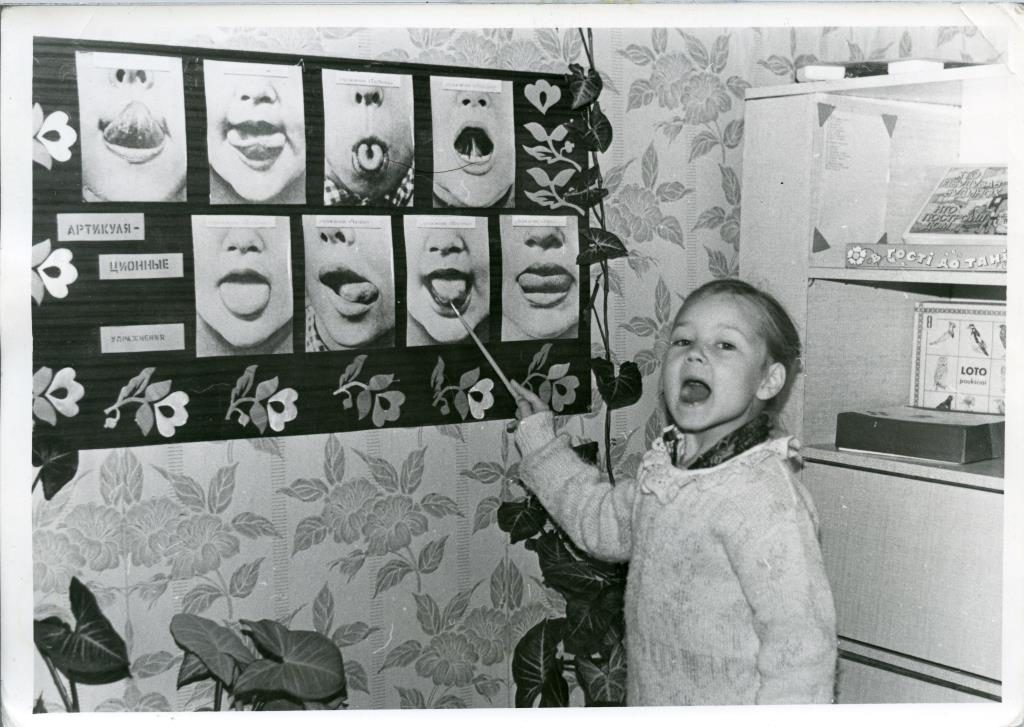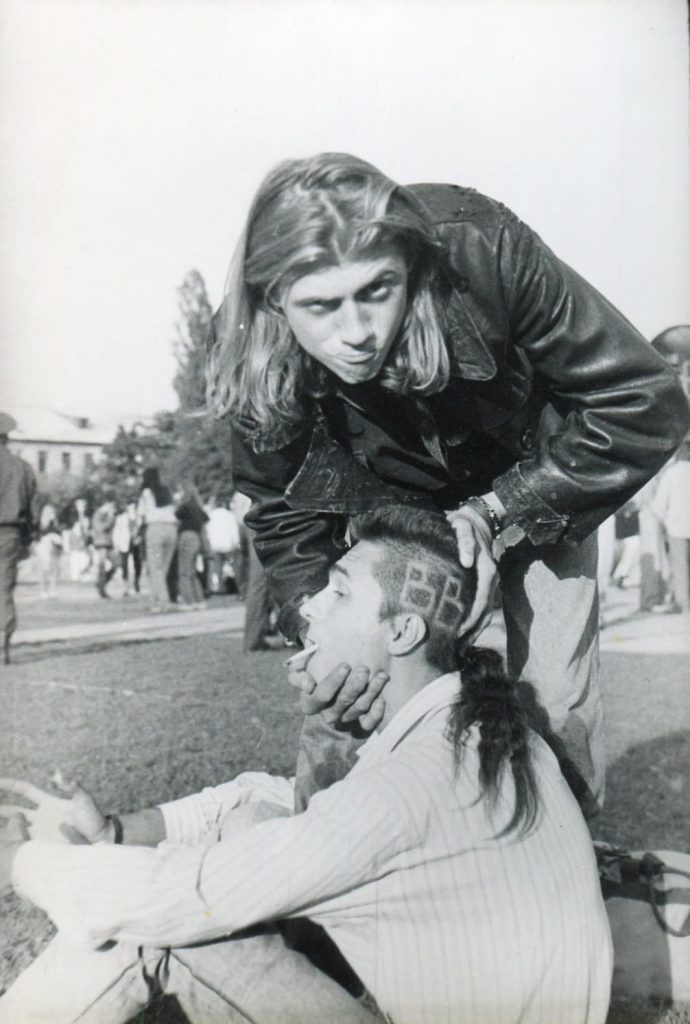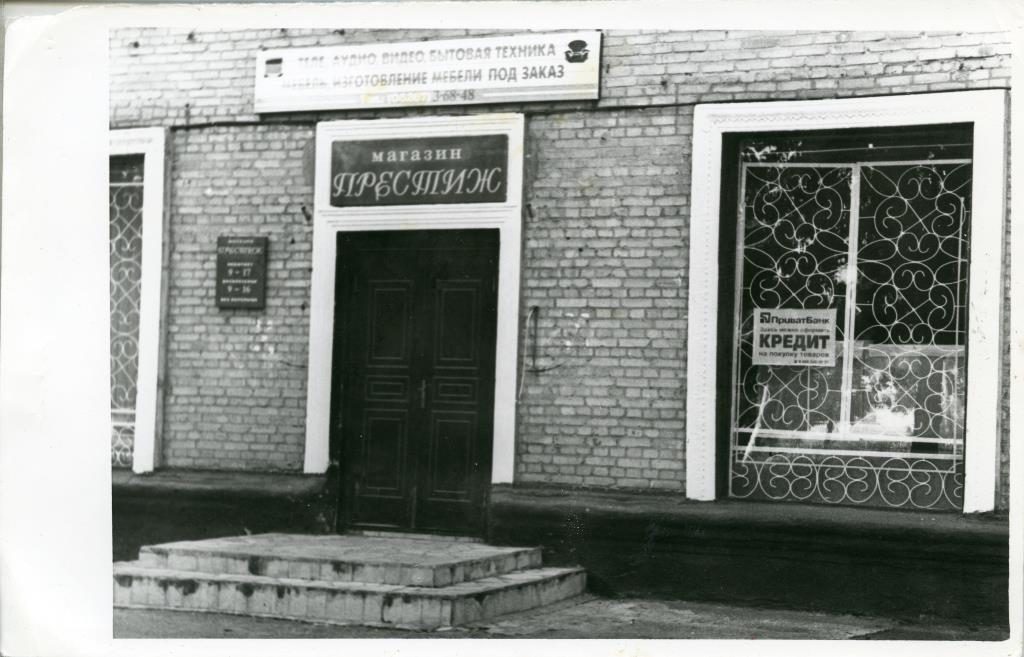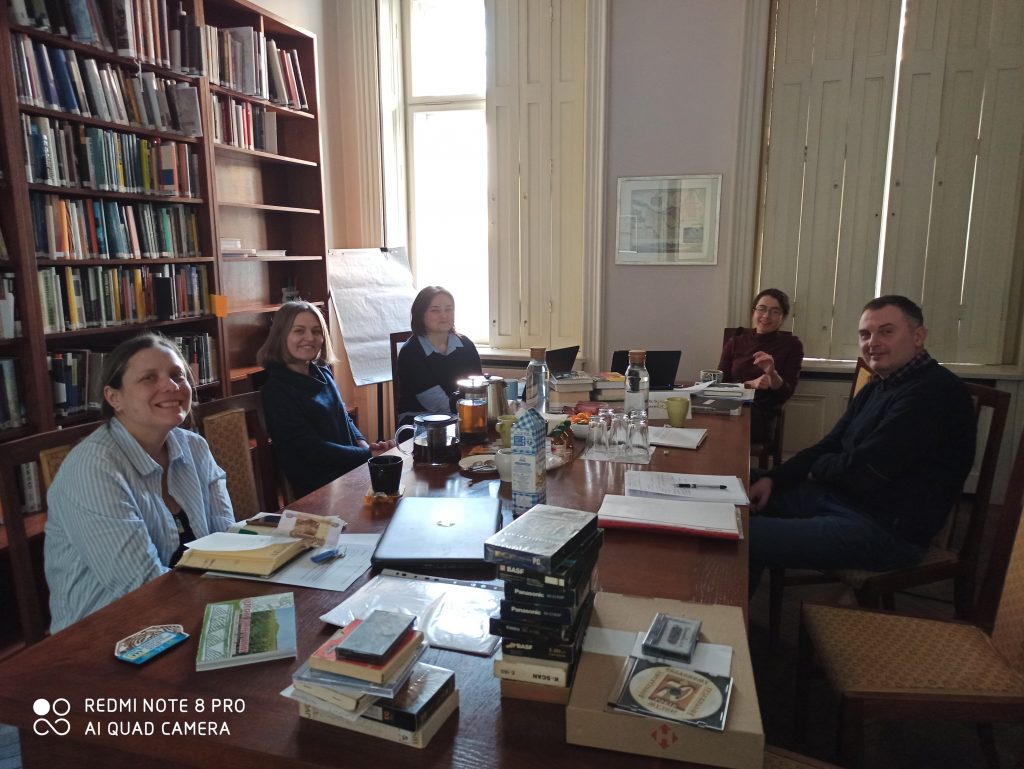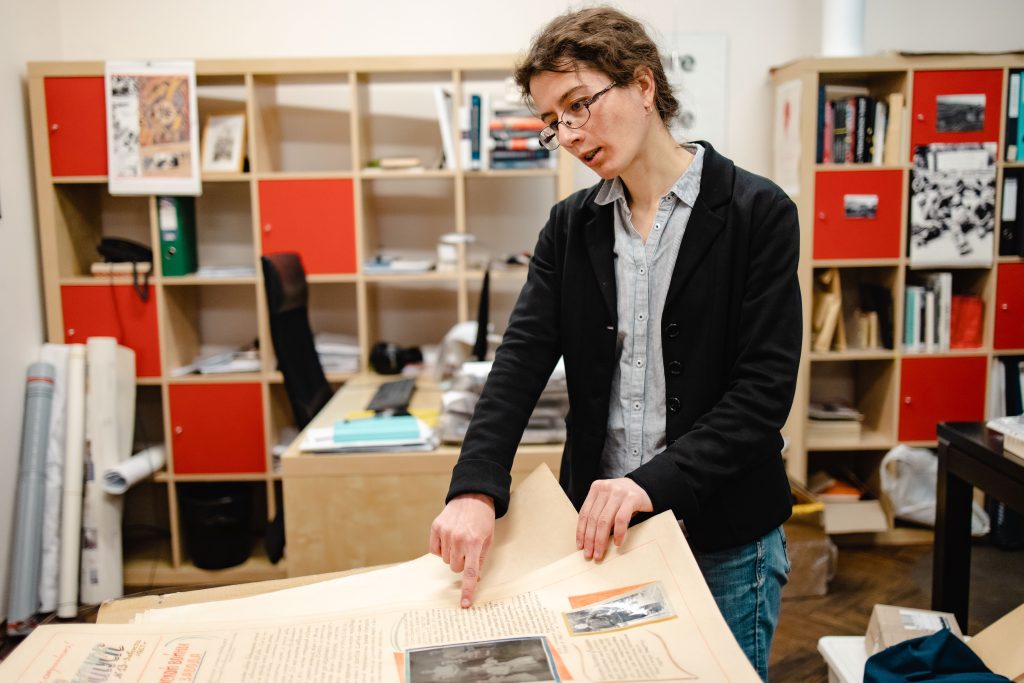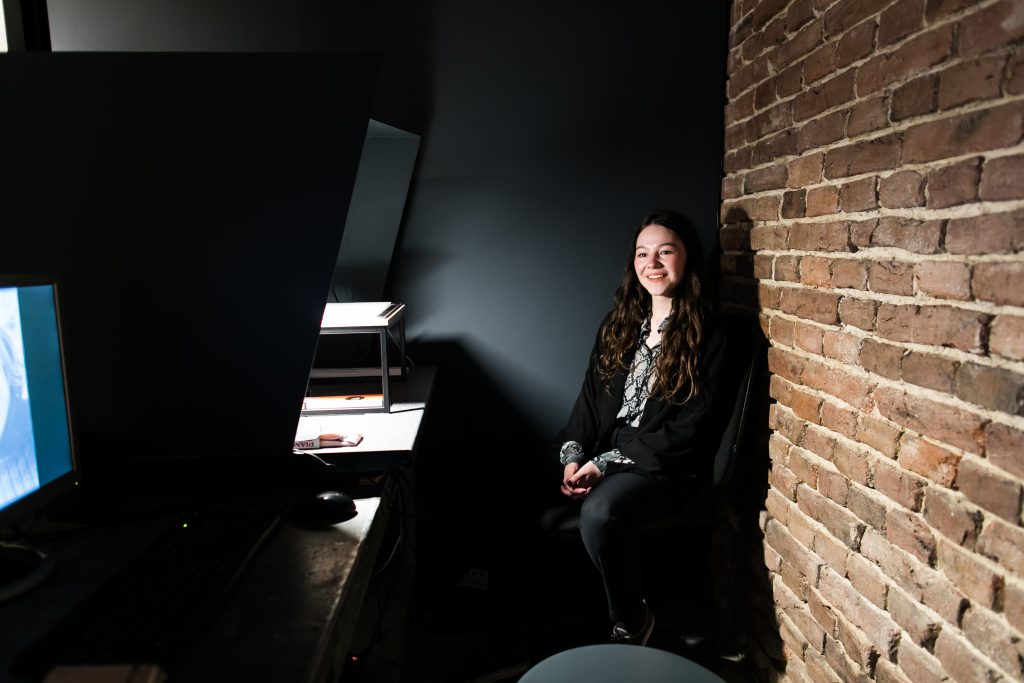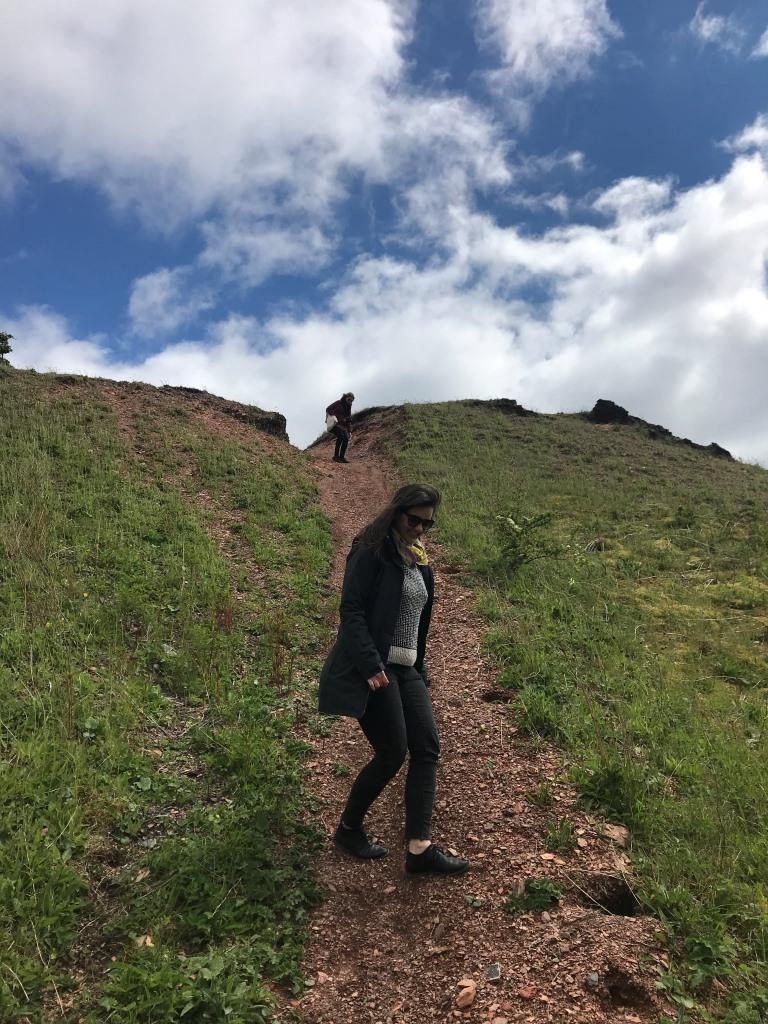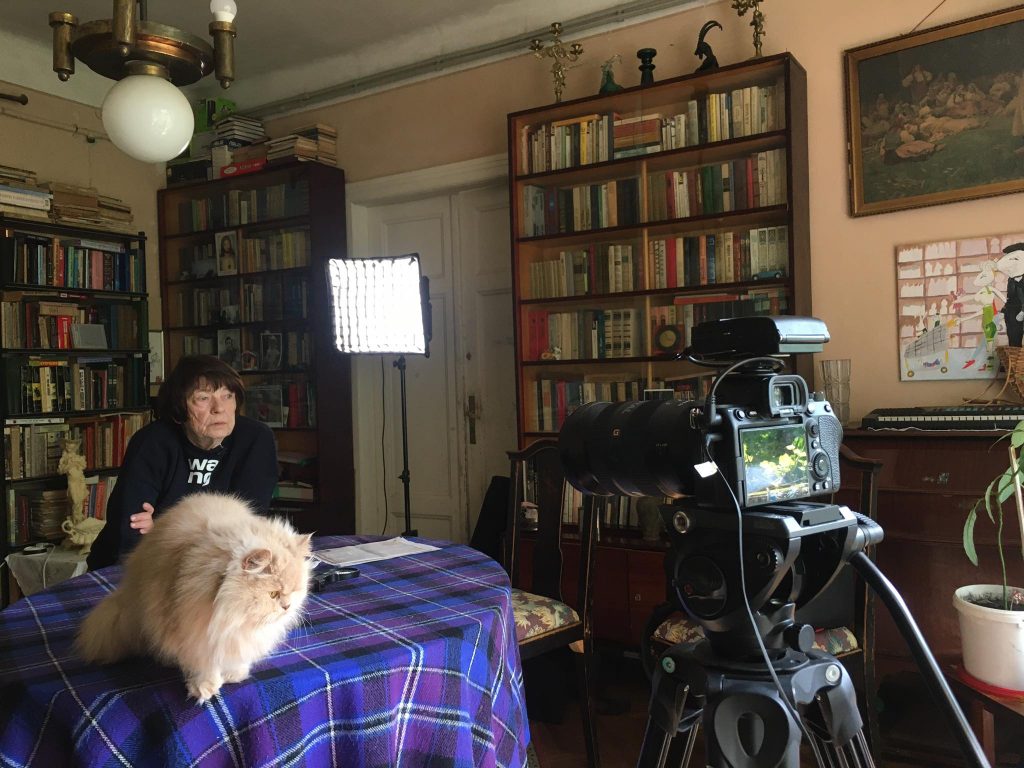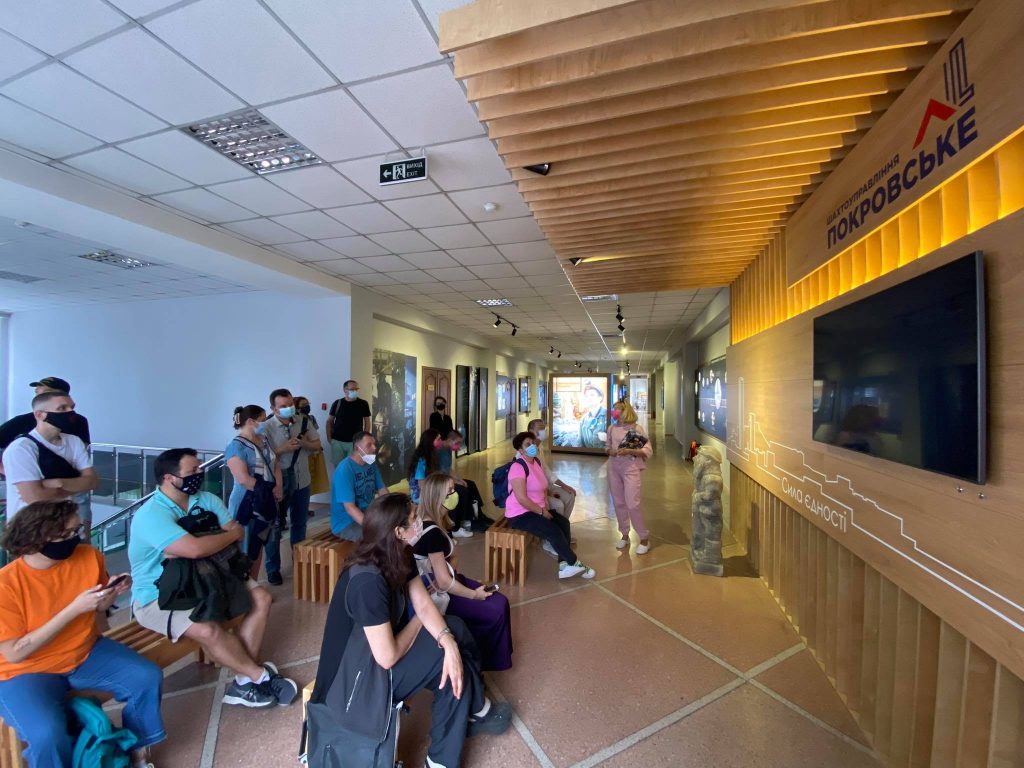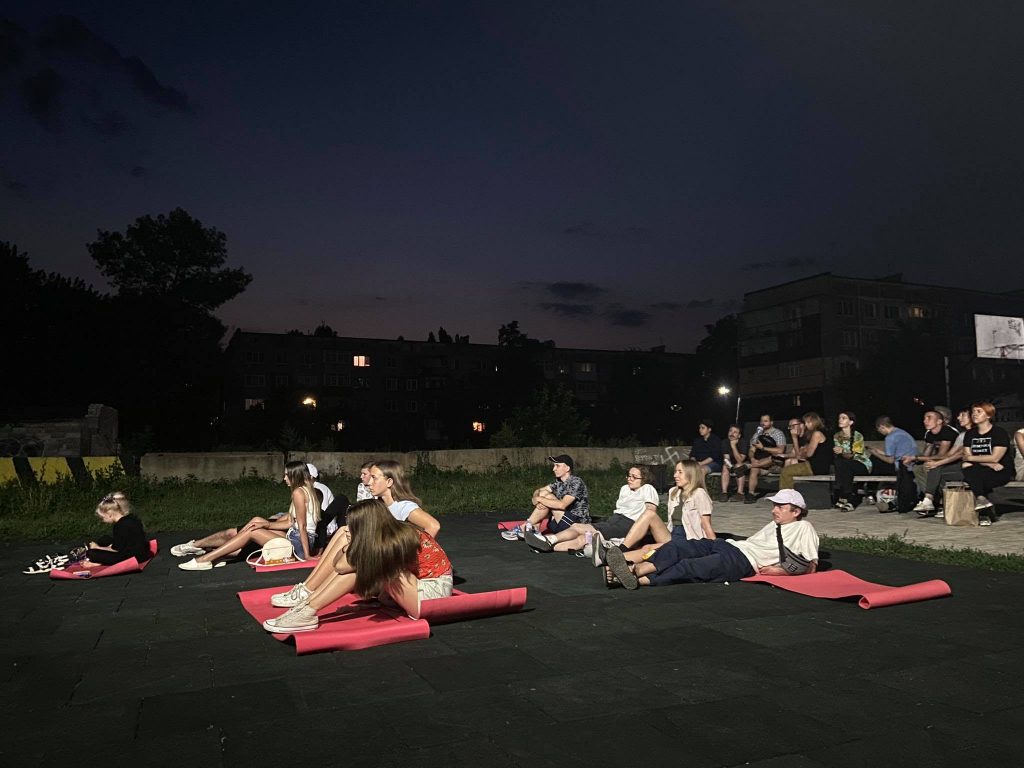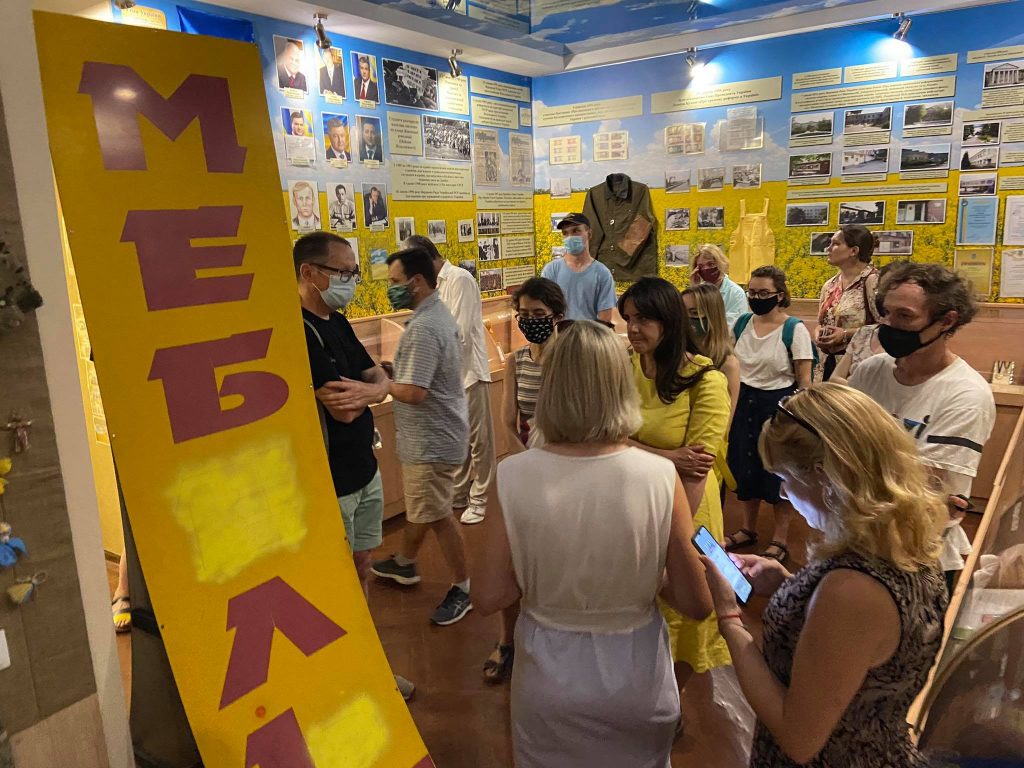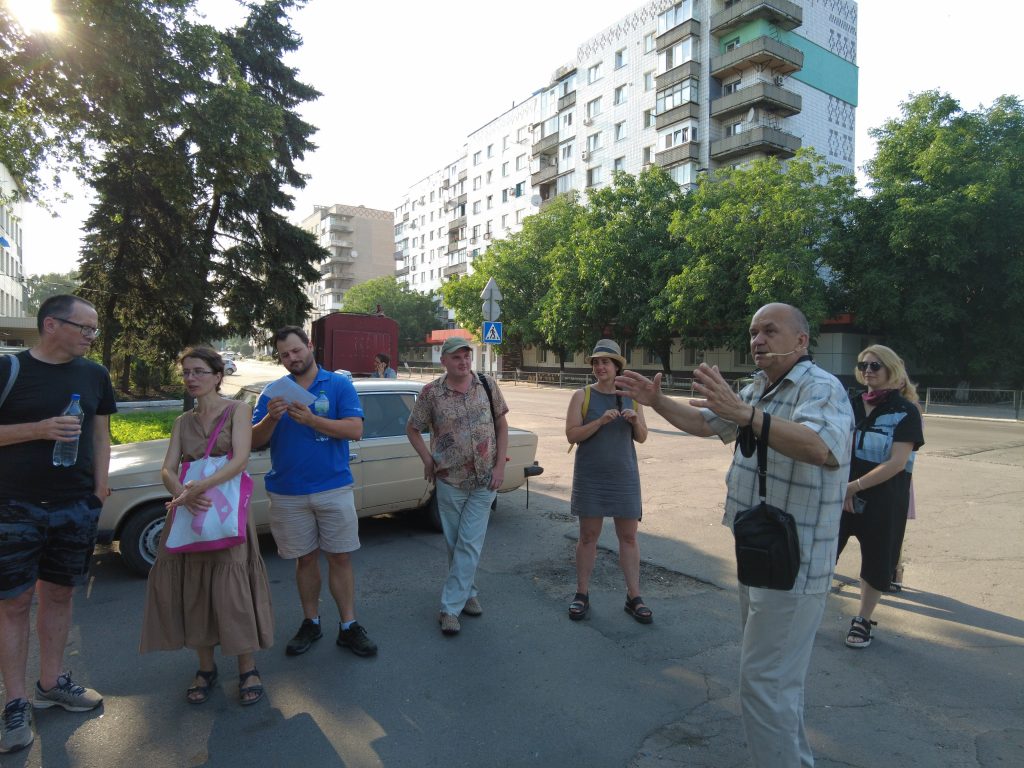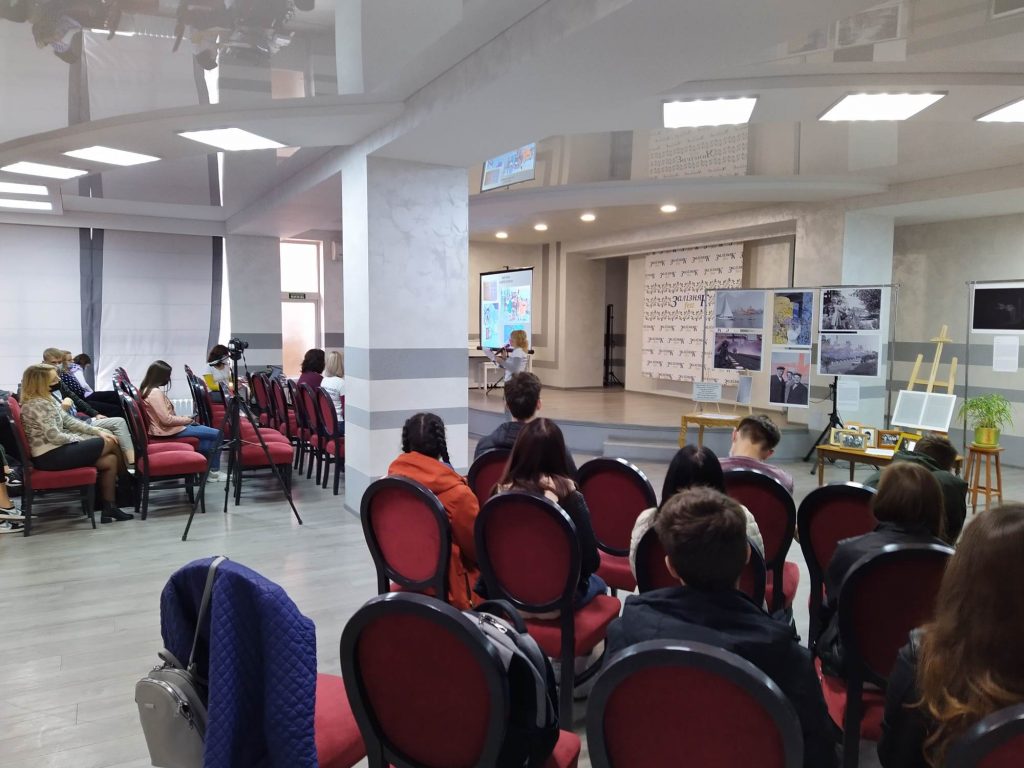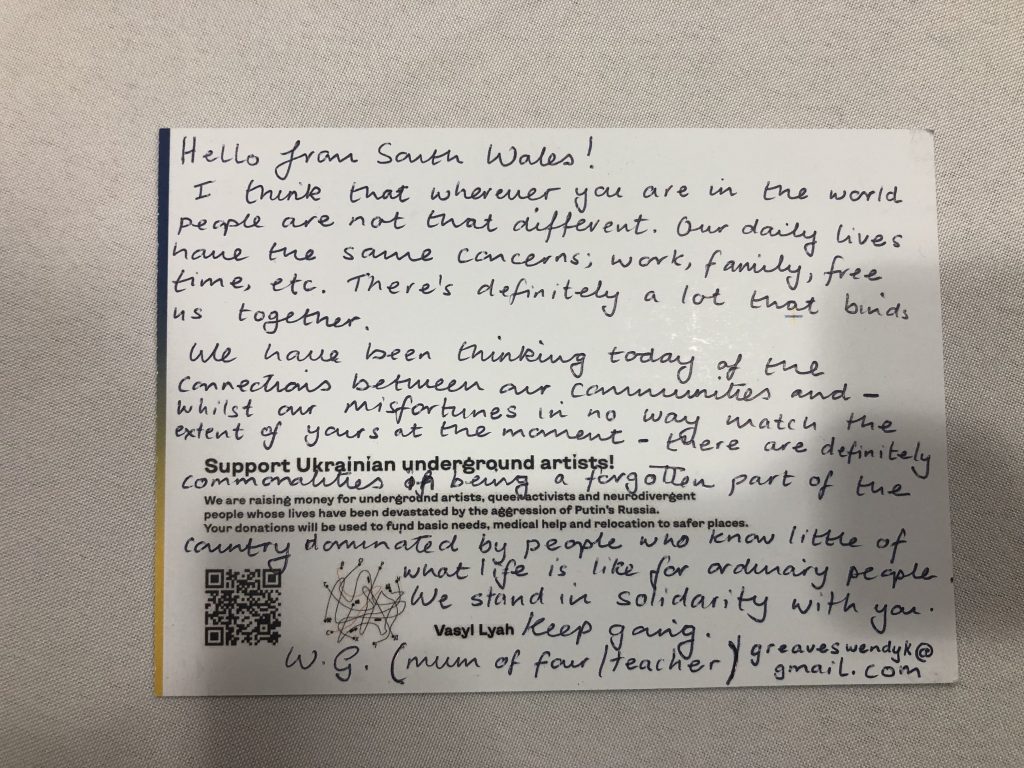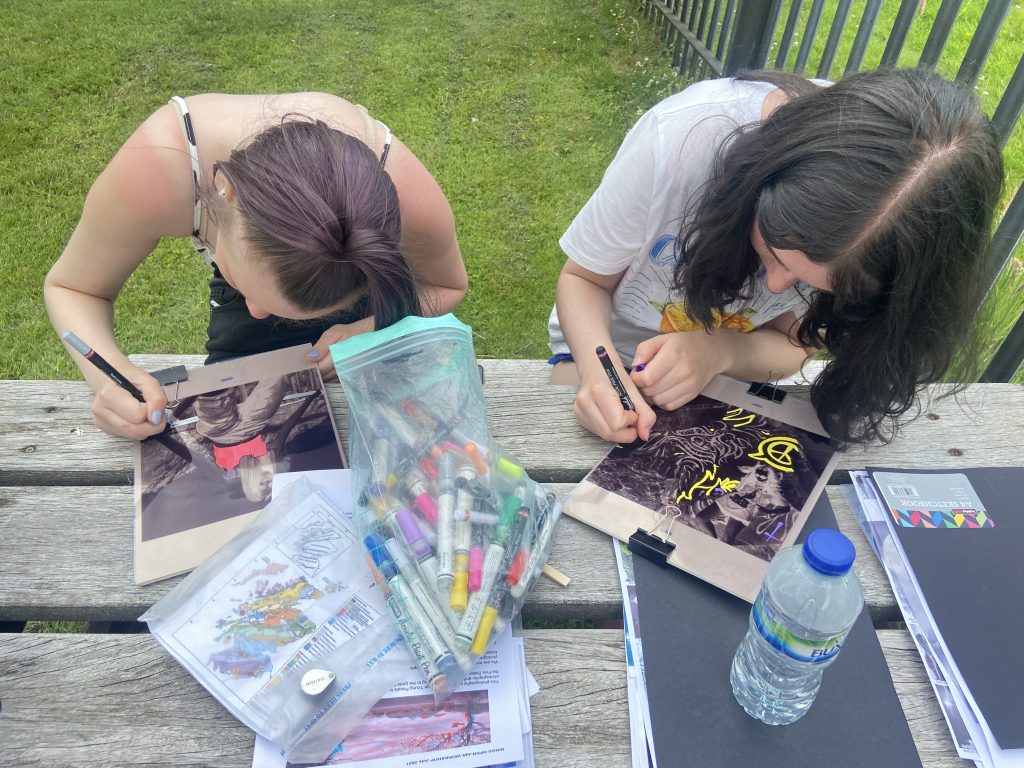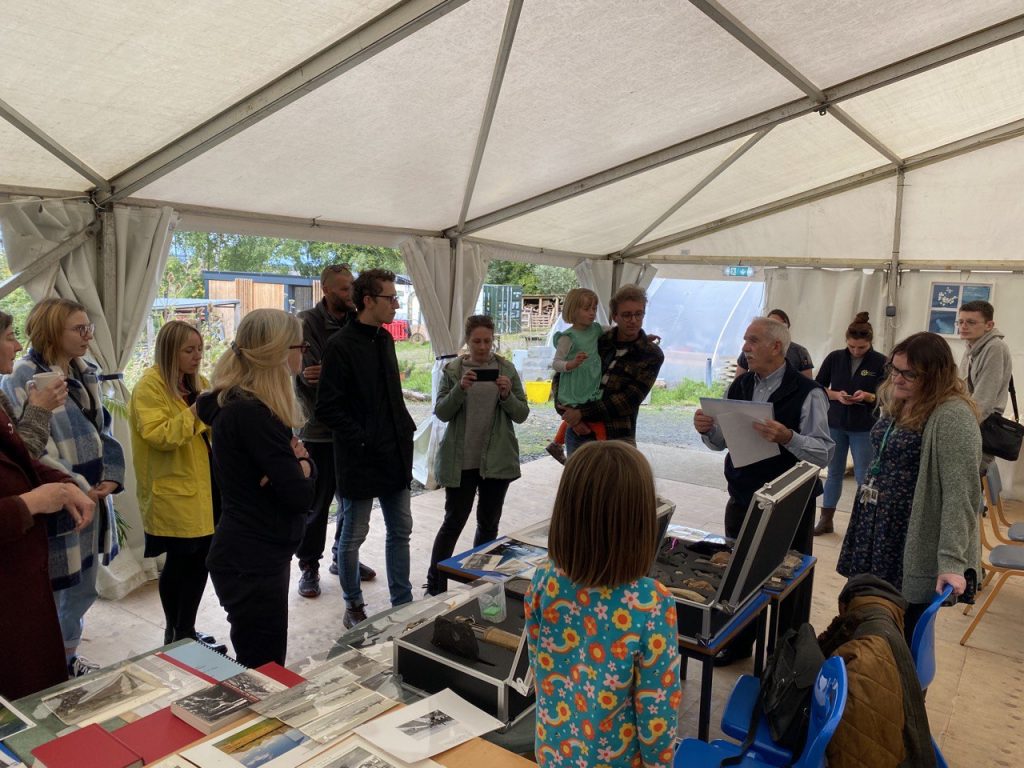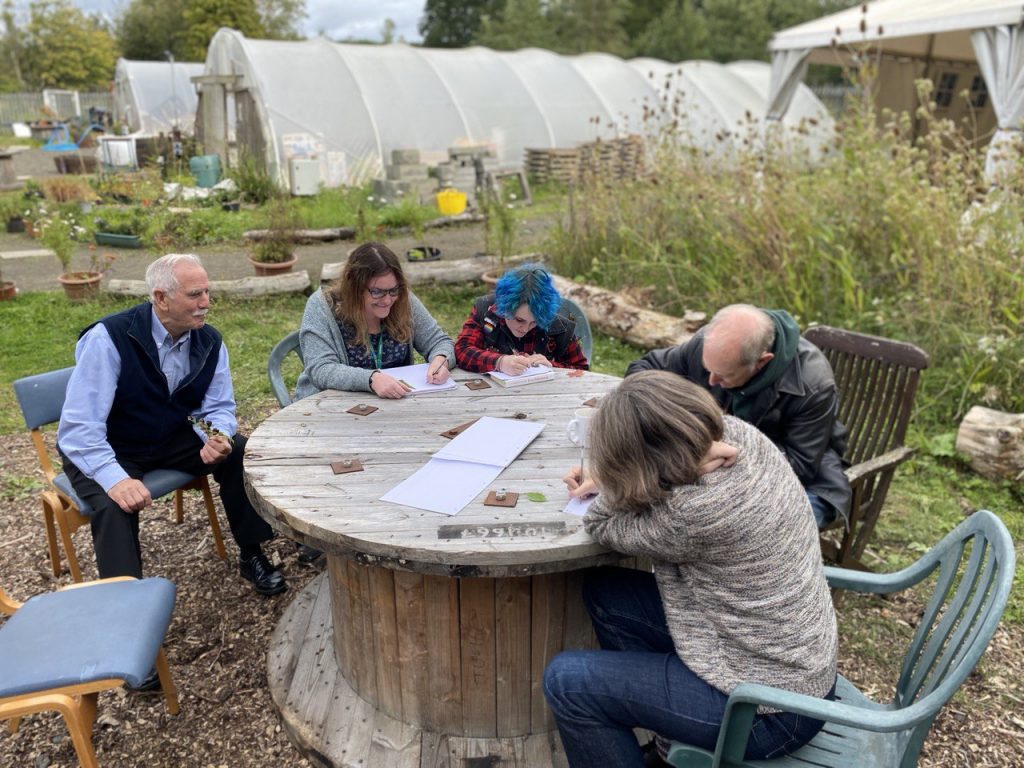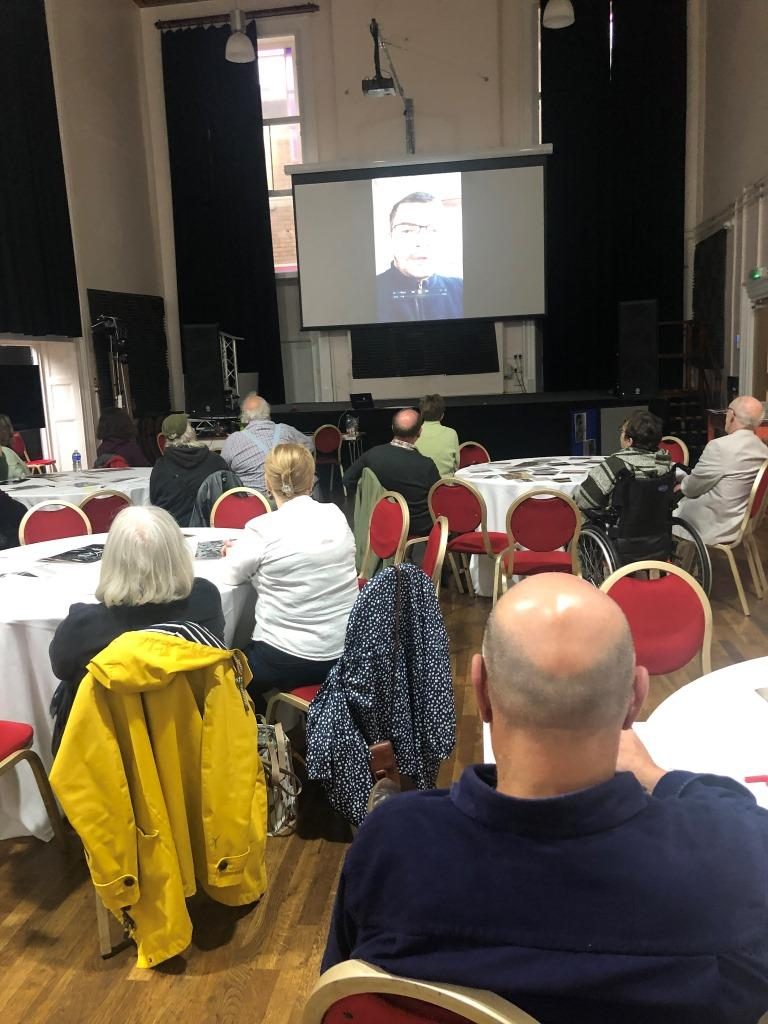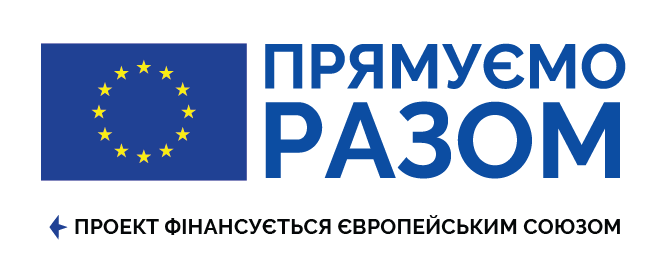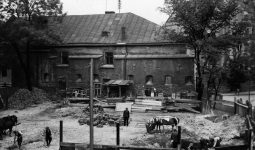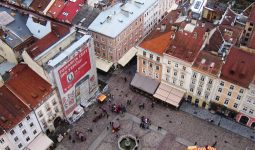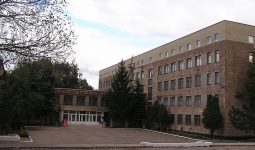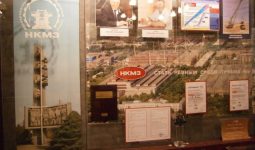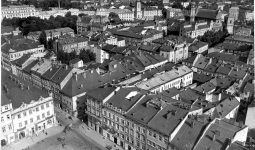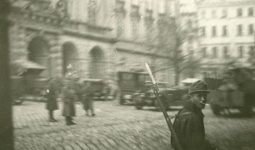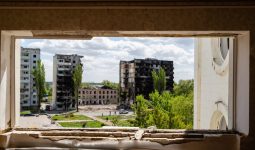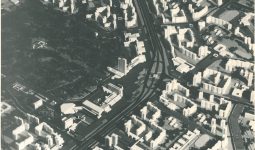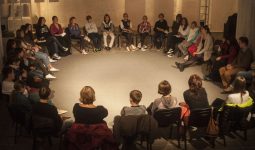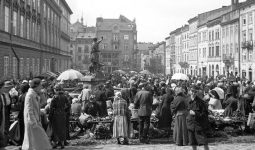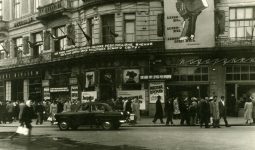Un/Archiving Post/Industry
Dr. Iryna Sklokina, Viktoriia Grivina
This project was implemented by the Center for Urban History and the University of St Andrews in partnership with Mariupol Local History Museum, Pokrovsk Historical Museum, and Donetsk Regional Museum of Local History. It was supported by the EU’s House of Europe and the UK’s Global Challenges Research Fund.
Industrialization is one of today's key historical narratives. Industry, its legacies, and post-histories have shaped Ukrainian city spaces, lifestyles, and economic relations.
Industry's legacies include not only cast iron, coal, and machinery, but also the cultural images it produced of itself through institutions such as centers of culture, factory newsletters, museums, hobby groups, and photo labs at factories.
Visual media, such as photos and videos, produced images of dedicated workers and engineers, production successes and achievements. But these media were also deployed beyond the monopoly of institutions: more readily available in the 20th century, photo and video cameras were used by workers for hobbies, creativity, and socializing, to document their families, friends and colleagues, and among photo amateurs from different cities.
The economic transformations of the 1990s resulted in fragmentation, and even the loss of industrial archives, both institutional and private. At the same time, the rapid destruction of industrial buildings, the redevelopment of industrial areas into housing and office facilities, and the transformation of plants into creative hubs often generated feelings of loss, and demand and readiness to preserve what is left after industry and what constitutes its cultural post-history.
It was for this reason that the "Un/archiving Post/industry" project was created. Its aims were to collect surviving industrial heritage collections and create digital archives illustrating the work, leisure, space, and architecture, festivities and everyday life of industrial cities, plants and factories, and industrial communities at work and at home.
The project had the goal of establishing a dialogue between generations (through interviews with the former workers, engineers, photographers and video amateurs who documented industry), between different regions (that are stereotypically believed to be industrial, or otherwise), between museums and archive owners, and between Ukrainian and international researchers, artists, and activists.
In the spring of 2020, the project was granted funding from the House of Europe, and in summer 2020 co-funding was received from the UK’s Global Challenges Research Fund. The project involved the digitization of photos, videos, and audio materials. All digitized materials were published online through the Center’s Urban Media Archive. Collections are open access and available to researchers and other interested parties on request. In parallel with the digitization work, we conducted research into the cultural infrastructure surrounding the industry through archival consultation and interviews with former workers, photographers and amateur filmmakers. In July 2021, we ran a summer camp with artists and researchers at Pokrovsk Historical Museum to give the digitized collections a “second life.” Student projects at the summer school were exhibited at the Pokrovsk Zalizniak-fest.
In July 2021, the summer school residency took place in Pokrovsk in the Donetsk region. It brought together museum workers, researchers and artists with the aim to give a “new life” to the digitized collections. As a result, an exhibition and brochure presented all the participants’ creative projects. One more result of the project is the online exhibition “Ecology in Focus” dedicated to the role of visual media in the formation of ecological consciousness.
In 2023, the project won the prestigious European Heritage Awards / Europa Nostra Awards 2023 in the category of Citizen Engagement and Awareness Raising. For 21 years, these awards have been a key tool for recognizing the value of cultural and natural heritage for European society, the economy, and the environment.
The digitized collections include:
- Official press photos by Pavlo Kashkel from the 1950-60s of Mariupol (3,638 photos): production facilities, cityscapes, portraits of Soviet hero workers;
- Press photos by Mykola Bilokon from the 1970-90s of Pokrovsk and vicinity (over 21,000 photos): production at the enterprises, social infrastructure, urban life, children in the city, holidays and festivities, commemoration in the urban landscape, privatization and economy changes in the 1990s, people with disabilities, WWII veterans and labor heroes, leisure and hobbies, and much more;
- Wall newspapers from Kostiantynivka Bottle Plant;
- Collection of photos from the 1920s-30s from the Museum of the Interpipe plant in Dnipro;
- Home movies and photographs documenting family celebrations, everyday life, leisure, and childrearing: see, among others, the collection of Ivan Khiliukov from Kramatorsk and the orphaned collection rescued by Vitaliy Matukhno in Lysychansk;
- Political and social engagement in the industrial town of Kostiantynivka in Soviet times, Perestroika, and beyond: amateur films by Mykola Serov;
- Coal miners protests from late 1980s – early 1990s in the photo collection of Anatolii Tyshchenko from Pokrovsk;
- Images of school life and patriotic education in collections from Druzhkivka and Kramatorsk;
- Industry and the cityscape of Soviet Lviv, including newsreels (c.7,000 videos) and photo collections: Industrial Biographies of the City; Lviv Bus Plant from Liubomyr Krainyk; Stepan Misinskyi and Mariia Ferneza collection from Automatic Loading Machines plant;
- Collection of the Museum of Railways featuring sports competitions of the 1950s, Lviv;
- Professional visits and exchange of experience between the workers of the socialist countries in Volodymyr Kulikov’s collection;
- Street life and creative groups of Lviv in photos by Vil Furgalo from the 1980s-90s;
- Photos of rock communities in Slovyansk from the 1990s;
- Postcards of 19th - 20th century Mariupol;
- Collections of family photos from Yuzivka (shared by the Glamorgan Archives in Cardiff, South Wales);
- Other materials, including interviews with owners and authors, archival descriptions of collections, etc.
Related publications, presentations, public discussions on the topic
- Project call for digitization of industrial heritage materials;
- Documentary “Histories of (Post)Industrial Lviv” in partnership with the “Pryvit” company, winner of the competition "Create with Suspilne Broadcasting"; Labor in the Postwar City, Life of Industrial Person Leisure and Culture for Industrial Workers, Ecology and Welfare;
- Anastasia Kholiavka, "Ideology in Focus. Mariupol Photography by Pavlo Kashkel";
- Article by project research assistant Viktoria Grivina about the exhibition "Non-Submissive Gene" at Donetsk Regional Museum of Local History; and Kramatorsk’s Rebellious Gene, in: Transitions;
- Victoria Donovan and Darya Tsymbalyuk, "From ‘ruin porn’ to zabroshka erotic: A study of Severodonetsk and an interview with Kateryna Siryk and Oleksandr Kuchynskyi";
- Lecture by Iryna Sklokina at the ReHerit forum "Heritage as Opportunity";
- Project team presentation at the GCRF grantees workshop "Whose data is it anyway?";
- Report by Anastasia Kholiavka and Iryna Sklokina at the workshop "Digitizing Industrial Heritage", Center for Digital History at the University of Luxembourg;
- Anna Bahachenko, "City in Focus: Photos of Mariupol and Discussions of Its Past and Future";
- Anastasia Kholiavka, Iryna Sklokina, "Ukraine Between Global South and South: International Cooperation in Cultural Heritage";
- Iryna Sklokina, Culture vs Industry: Professional Photographers in the Company Towns of Donbas, Presentation at the international conference “Soviet ‘I’ and Soviet ‘We’ in between Ideology and Reality”, organized by Kyiv Mohyla Academy, 26.06.2021;
- Iryna Sklokina, “Digital Projects of Soviet history in Ukraine: Overcoming the Limits of ‘Nostalgia’ and ‘Totalitarianism’”, presentation at the roundtable “Museum of Soviet History: Repressions and/or Nostalgia: How to Escape the Trap?”, 20 May 2021;
- Anastasia Kholiavka, Iryna Sklokina, "Ukraine Between Global South and South: International Cooperation in Cultural Heritage"
- Dmytro Bilko, "Rejected Photos and the Canon of Late-Soviet Secondary School Photography";
- Anna Bahachenko, "A Satellite of the 'Big Cinematography'";
- Anastasia Kholiavka, "Amateur Press at the Enterprises: What did worker correspondents write about and for whom did they write?";
- Iryna Sklokina, "How to Study Amateur Film?", lecture as a part of the exhibition program "Society with a Movie Camera"
